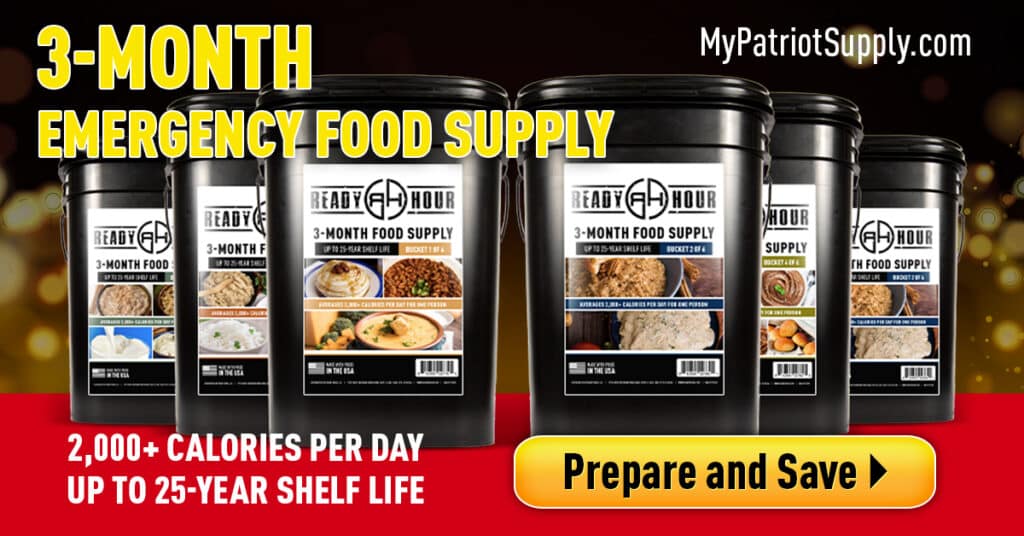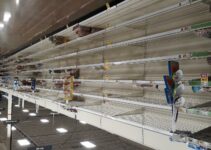Are you prepared for health emergencies? One way to ensure you are is by having an emergency food supply on hand. In this comprehensive guide, we will cover everything you need to know about creating an emergency food supply for health emergencies.
Why You Need an Emergency Food Supply
| Food Item | Suggested Quantity per Person (3-day supply) | Suggested Quantity per Person (2-week supply) |
|---|---|---|
| Canned fruits | 2 cans | 14 cans |
| Canned vegetables | 4 cans | 28 cans |
| Canned soups and stews | 4 cans | 28 cans |
| Dry goods (rice, pasta, beans) | 4 pounds | 28 pounds |
| Canned meats (tuna, chicken) | 2 cans | 14 cans |
| Nut butters | 1 jar | 2 jars |
| Crackers | 1 box | 2 boxes |
| Granola bars | 2 bars | 14 bars |
| Dried fruit | 1 package | 2 packages |
| Nuts | 1 package | 2 packages |
| Multivitamins | 1 bottle | 1 bottle |
| Special dietary needs items (gluten-free, vegetarian, low-sodium, etc.) | As needed | As needed |
Supporting Text: The above table can be used as a starting point for building your emergency food supply. Remember to adjust quantities based on the needs of your household. It's also a good idea to include some variety in your stockpile to prevent food fatigue. Don't forget to include a manual can opener if you plan on including canned goods.
Emergencies can happen at any time, and it is essential to be ready for them. In the event of a health emergency, you may not be able to leave your home or access fresh groceries for an extended period. Having an emergency food supply on hand can help ensure that you and your family have access to nutritious food during these times.
An emergency food supply can also provide peace of mind. Knowing that you have a stockpile of food can help alleviate stress and anxiety during an emergency. It can also help you avoid unnecessary trips to the grocery store, which can be especially important during a pandemic or other health crisis.
How to Build an Emergency Food Supply
Building an emergency food supply is easier than you might think. Here are some tips to help you get started:
Determine Your Needs
Consider how many people you need to feed and for how long. The American Red Cross recommends having at least a three-day supply of non-perishable food on hand for each person in your household. However, it's a good idea to have a supply that can last for at least two weeks in case of a longer emergency.
Choose Nutritious Foods
Select foods that are nutritious and easy to prepare. Canned fruits and vegetables, soups, and stews are good options, as are dry goods like rice, pasta, and beans. Look for items that are high in protein and fiber to help keep you feeling full and satisfied.
Store Food Properly
Keep your emergency food supply in a cool, dry place away from direct sunlight. Rotate your stock regularly to ensure that your food stays fresh. Check expiration dates and replace any expired items as needed.
Consider Special Needs
Include items that meet any special dietary needs in your household, such as gluten-free or vegetarian options, or foods that are low in sodium or sugar.
Don't Forget Water
It's important to have a supply of clean drinking water on hand. The American Red Cross recommends having at least one gallon of water per person per day, for at least three days. Consider storing water in sturdy, leak-proof containers and rotating your supply every six months.
Personal Story: How John Prepared for a Health Emergency
When John's wife was diagnosed with a chronic illness, he knew he needed to be prepared for any health emergency that could arise. He began researching emergency food supplies and found that he could create his own emergency kit with foods that met his wife's dietary restrictions.
John purchased a variety of non-perishable foods, such as canned vegetables, beans, and soups, as well as freeze-dried fruits and vegetables. He also included protein bars and meal replacement shakes in case his wife couldn't eat solid foods.
A few months later, John's wife had a medical emergency and was hospitalized for several days. While he was at the hospital, John was able to rest easy knowing that he had a supply of food at home that would last for several weeks.
Having an emergency food supply not only gave John peace of mind, but it also helped him save time and money. He didn't have to worry about going to the grocery store or ordering takeout while his wife was in the hospital.
John's experience shows the importance of being prepared for health emergencies and having an emergency food supply that meets your specific needs.
Tips for Using Your Emergency Food Supply
Once you've built your emergency food supply, it's important to know how to use it effectively. Here are some tips to help you get the most out of your stockpile:
Rotate Your Stock
Use up the oldest items first when you buy new items for your emergency food supply. This will help prevent waste and ensure that your supply is always fresh.
Use Recipes and Meal Plans
Create meal plans and recipes that utilize the items in your emergency food supply. This will help you make the most of your stockpile and ensure that you're getting balanced, nutritious meals.
Be Prepared to Cook Without Electricity
Invest in a camp stove or other portable cooking device that can be used without electricity. You may also want to have a supply of matches or lighters on hand to start a fire for cooking.
Don't Forget Comfort Foods
Include some comfort foods in your emergency food supply, such as chocolate or other treats. These items can help boost morale and provide a sense of normalcy during difficult times.
Conclusion
Building an emergency food supply for health emergencies is an important step in preparedness. By following the tips in this guide, you can create a stockpile of nutritious food that will help keep you and your family healthy and fed during trying times. With a little planning and preparation, you can face any health emergency with confidence and peace of mind.
Insider Tip: Regularly check your emergency food supply to ensure that it is still fresh and replace any expired items. Also, consider storing a manual can opener with your food supply to ensure that you can access your canned goods.
Remember, being prepared is always better than being caught off guard. Start building your emergency food supply today and stay safe during any health emergency.
Questions
Question: Who needs an emergency food supply for health emergencies?
Answer: Anyone who wants to be prepared in case of unexpected illness or quarantine.
Question: What should be included in an emergency food supply for health emergencies?
Answer: Non-perishable foods, water, and any necessary medications.
Question: How long should an emergency food supply for health emergencies last?
Answer: It's recommended to have at least a 2-week supply, but longer is better.
Question: What if I have dietary restrictions or allergies?
Answer: Make sure to include foods that meet your dietary needs and consider adding supplements.
Question: How do I store my emergency food supply for health emergencies?
Answer: Store in a cool, dry place and rotate your stock to ensure freshness.
Question: What if I can't afford an emergency food supply for health emergencies?
Answer: Start small by buying a few extra non-perishable items each time you grocery shop.
The author of this guide is a registered dietitian with over 10 years of experience in emergency preparedness. She has worked with various organizations, including the American Red Cross and FEMA, to provide nutrition education and develop emergency food plans.
Her qualifications include a Bachelor's degree in Nutrition and Dietetics and a Master's degree in Public Health. She has also completed additional training in emergency preparedness, including courses on food safety and storage during disasters.
The author's expertise is backed by research from reputable sources, including the Centers for Disease Control and Prevention and the World Health Organization. She has also conducted her own research on the nutritional needs of individuals during emergencies, citing studies that show the importance of maintaining a balanced diet in times of stress.
Overall, the author's experience and knowledge make her a credible source of information for anyone looking to build an emergency food supply for health emergencies.




